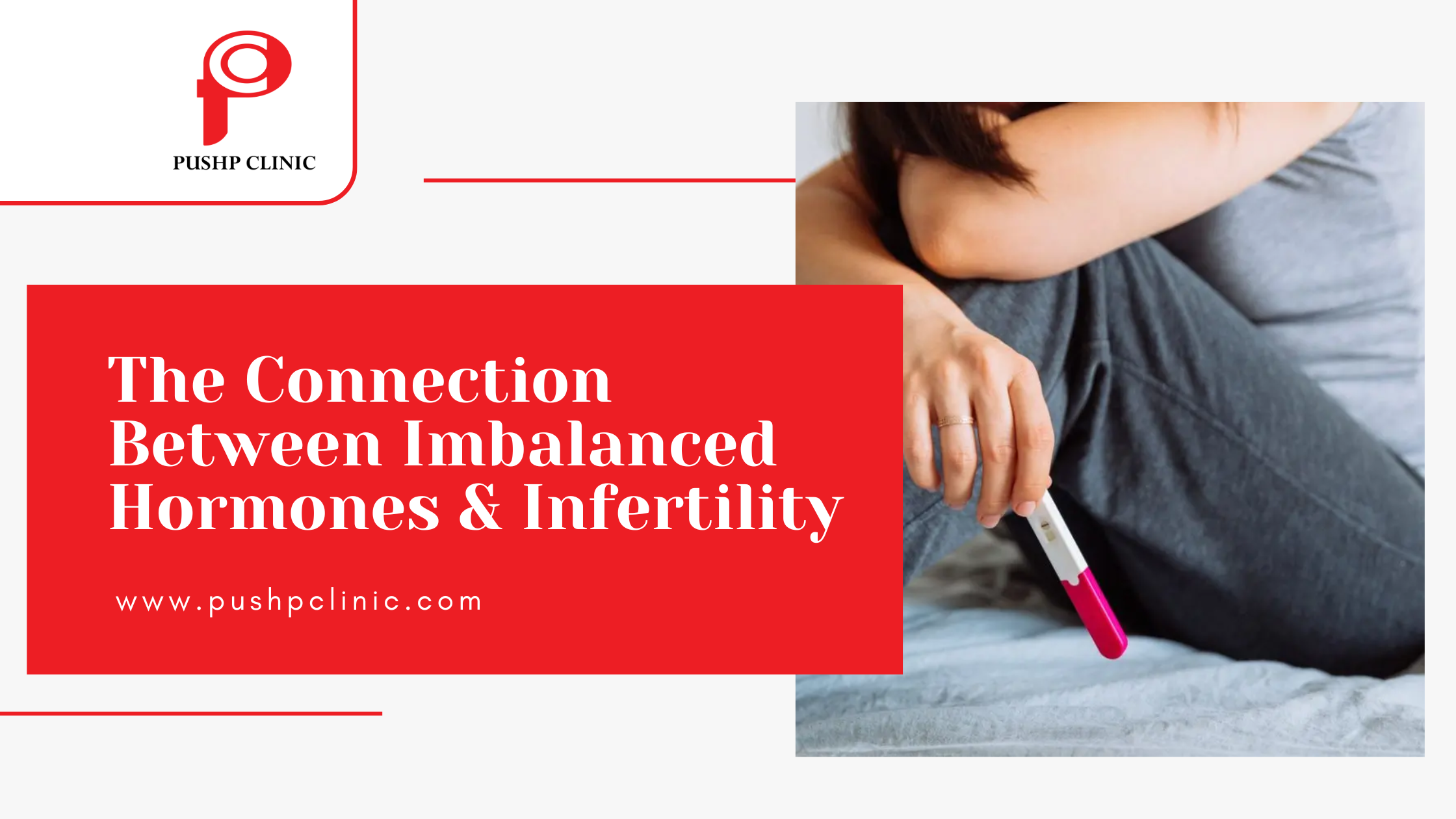It’s all about age or lifestyle choices when it comes to fertility. However, there’s one factor that plays an important role in fertility, and that’s hormones.
Hormones are the chemical messengers in our bodies that are responsible for regulating a wide range of processes, and reproduction is one of them. When these hormones get imbalanced, issues start arising, especially fertility problems, which are most common in women.
If you’re also facing fertility challenges, you must familiarize yourself with the role of imbalanced hormones behind it.
The best gynecologist in Indore at Pushp Clinic has taken the step forward to let women know about this, so that the next step of taking infertility treatment— the remedy for this— can be taken, instead of finding irrelevant answers here and there and cursing destiny.
What Are Hormones, And Why Do They Matter?
Your body produces various glands such as the thyroid, ovaries, and pituitary gland, and there are chemicals produced from these glands, known as hormones. They have great control over body functioning, especially including your menstrual cycle, ovulation, and even pregnancy. For women, hormones like estrogen, progesterone, and luteinizing hormone (LH) are essential for pregnancy.
When your hormones are in balance, your body functions smoothly, especially the reproductive system, which is a major concern for women. But when the levels start becoming imbalanced, the impact is significant, including an irregular menstrual cycle and improper ovulation, which can cause the root of other issues.
How Hormonal Imbalance Affects Fertility
-
Irregular Ovulation
One of the most common causes of infertility due to hormonal imbalance is irregular ovulation. Here, the fertilization process is disturbed as ovulation does not take place properly.
Hormones like LH and follicle-stimulating hormone (FSH) play an important role in triggering the process of ovulation. If these hormones become imbalanced, ovulation ultimately fails, which leads to pregnancy failure.
-
Polycystic Ovary Syndrome (PCOS)
PCOS is a hormonal disorder that is becoming very common these days that affects women’s reproductive health. It is diagnosed by high levels of androgens (male hormones) and insulin resistance, which are responsible for hormonal imbalances in the body.
One of the symptoms of PCOS is improper ovulation, leading to infertility. Women with PCOS are not able to ovulate regularly, making it difficult to conceive. In some cases, if PCOS worsens, it can lead to the formation of cysts in the ovary, which can further complicate the issue.
-
Thyroid Imbalances
The thyroid is a hormone responsible for regulating metabolism in the body and is shaped like a butterfly on the neck. If you have an underactive thyroid (hypothyroidism) or an overactive thyroid (hyperthyroidism), it can disturb your menstrual cycle, making your fertility a matter of concern.
Hypothyroidism can lead to irregular periods, while hyperthyroidism can result in decreased fertility by affecting ovulation. The thyroid hormones help regulate the hormones that control ovulation, so an imbalance can have a direct effect on a woman’s ability to conceive.
-
Luteal Phase Defect
The luteal phase is the second half of the menstrual cycle, starting after ovulation and ending when your period starts. During this period, the body releases the hormone progesterone that prepares the uterus for a potential pregnancy. If the levels of progesterone are too low, it can prevent the fertilized egg from implanting in the uterus, leading to infertility.
A luteal phase defect can make it hard for a woman to carry a pregnancy long-term. This condition can be caused by an imbalance in progesterone or other hormones that regulate the menstrual cycle.
How To Know If Your Hormones Are Imbalanced?
There are some signs that give you an alarming signal that your hormones are imbalanced.
- Irregular periods
- Weight gain without reason
- Excessive hair growth (hirsutism), especially on the face or chest
- Excessively oily skin, with acne
- Continuous mood swings such as anxiety, depression, or irritability
- Heavy bleeding and pain during periods
- Fertility issues
Suppose you’re experiencing any of these symptoms. In that case, it’s high time to consult with a healthcare provider, such as the best gynecologist in Indore, who can help you identify whether and how hormonal imbalances are contributing to your fertility issues.
Treatment For Hormonal Imbalance And Infertility
The good part is that hormonal imbalances that affect fertility can often be treated. The cause of imbalances decides which treatment option to choose.
- Medications:
Fertility medications like Clomid help stimulate ovulation in women who have trouble ovulating regularly. If you have PCOS, medications are proven to regulate insulin levels and improve fertility.
- Hormone Replacement Therapy (HRT):
For women with thyroid imbalances or low levels of progesterone, hormone replacement therapy can help balance hormones and regulate the menstrual cycle naturally.
- Lifestyle Changes:
Exercising regularly, maintaining a healthy weight, and managing stress play a major role in improving fertility balance. Maintaining a healthy weight, exercising regularly, and managing stress can help improve hormonal balance and fertility.
- In Vitro Fertilization (IVF):
In some cases, IVF is recommended to deal with fertility issues, where the fertilization process takes place outside the body in a laboratory, and then the embryo is placed in the woman’s uterus.
Conclusion
Fertility is highly affected by hormonal imbalances, making it very tough to conceive. Many people struggle to get pregnant due to these issues, and in such cases, only a healthcare practitioner can help you out, fulfilling your dream of motherhood—just like the best infertility treatment in Indore.
Here, you will get the right support and guidance from Dr. Sheela Chabbra, which will help you overcome infertility challenges and lead a healthy life.
So, don’t wait. Take your first step toward a healthy and happy tomorrow, which starts today.
